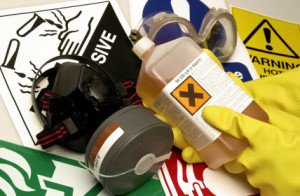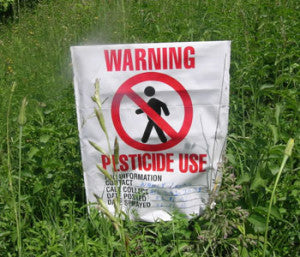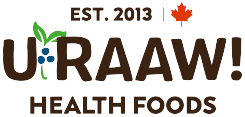Our body’s are bombarded with toxic chemicals on a daily basis. They are in the food we eat, in our water, on our lawn, in many of the personal care and cleaning products we use at home. Overtime, these chemicals can begin to accumulate in the body (know as toxic load), and lead to disease and health problems.
Fortunately, with a little effort on our part, many of the chemicals can be avoided. Here are ten things you can do to limit the number of chemicals you and your family are exposed to on a daily basis:
1. Eat fresh, local, organic produce whenever possible
If organic is not an option for all foods, try to avoid the 12 foods that contain the highest levels of pesticides.
2. Eat only wild seafood harvested through sustainable methods
Farm raised seafood (Atlantic salmon, shrimp, and tilapia are three of the worst offenders) contain antibiotics and chemicals. Try to consume wild seafood from sustainable fisheries.
3. Use natural cleaning products at home
Canadians spend nearly 300 million dollars on cleaning products every year – the majority of which contain toxic chemicals that can harm our health. The fix? Use products that contain only natural ingredients, or better yet, make your own cleaners.
4. Replace plastic food and beverage containers with glass
Many plastics contain BPA’s and other chemicals that leach in to the food and beverages that are stored in them. The simply solution is to ditch the plastic, and replace with glass.
5. Only drink filtered water
It’s very likely that your drinking water containing at least a small number of chemicals, that over time, may be harmful. Consider installing a drinking water filtration system under your counter, or at the very least, use a jug with a build in filter. If your local water supply is high in chlorine, you may also want to consider installing a shower head that has a filter.
6. Avoid processed, packaged foods
All packaged / processed foods contain potentially harmful ingredients, including GMO’s, preservatives, artificial sweeteners, and other chemicals. A simple rule to follow is if it has something on the label that you haven’t heard of, avoid it!
7. Avoid the use of pesticides and bug repellants
 Pesticides, insecticides, and bug repellants all contain chemicals that are potentially harmful to us. Take the effort to source safer, natural alternatives that do not impact the health of you our your environment.
Pesticides, insecticides, and bug repellants all contain chemicals that are potentially harmful to us. Take the effort to source safer, natural alternatives that do not impact the health of you our your environment.
8. Use natural personal care products
If you read the ingredient labels on your shampoo, toothpaste, or deodorant packages, you may have a difficult time pronouncing many of their ingredients. Switch to natural brands, or search for recipes and make your own – it’s easier than you think!
9. Stop using non-stick cookware
Non-stick cookware contains PFOA, a substance that may be connected to numerous health problems.
From a recent study potentially linking PFOA to chronic kidney disease:
“Perfluoroalkyl chemicals (PFCs), including perfluorooctanoic acid and perfluorooctane sulfonate, are manmade chemicals that have been detected in the blood of more than 98% of the US population. Results from experimental animal studies have suggested that an association between PFCs and CKD is plausible.”
Ceramic or glass cookware is a safe alternative.
10. Avoid products made with PVC vinyl
Many toys and home decorating products are made with PVC vinyl, which may contain lead and phthalates. They can be identified by the recycling code #3.
By taking the ten steps outlined in this post, you will significantly decrease your exposure to potentially harmful chemicals that pose personal and environmental health risks.
If you’re looking for more information about how to naturally detoxify your home, take a look at this online guide. It has some very in-depth details, helpful tips, and some great recipes for natural cleaners that you can make with ingredients found in your home.
What have you done to limit your exposure to chemicals? Please let us know by leaving a comment below!

